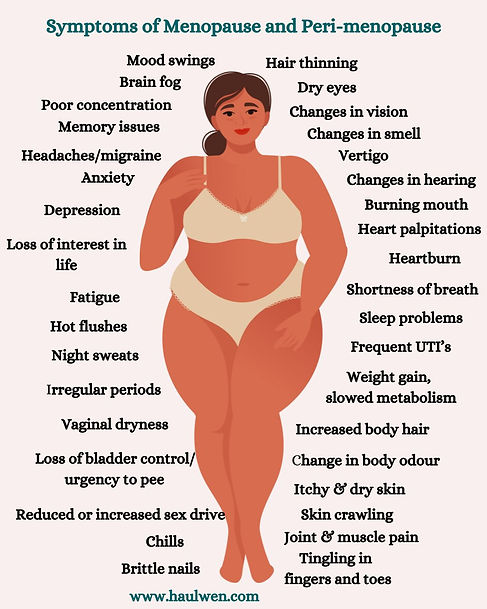

Let's talk about the Menopause
and peri-menopause
The sooner you have knowledge about this, and where to get resources the sooner you can start preparing for it, not only for yourself but for your friends family and colleagues. On this page I am going to tell my story and give you resources links to get more information.. I am taking a course on per
It doesn't matter your age or your gender you need to know about it
The sooner you have knowledge about this, and where to get resources the sooner you can start preparing for it, not only for yourself but for your friends family and colleagues.
On this page, I am going to tell my story and give you links to resources to get more information.

What are the symptoms?
Menopause is a natural biological process that marks the end of a woman's menstrual cycles and fertility. It typically occurs in women in their late 40s or early 50s, but the age at which women experience menopause can vary widely. Menopause is officially defined as the point when a woman has not had a menstrual period for 12 consecutive months. In the UK the average age is 51 with a 5-year window on either side, so it is common for women to experience menopause anytime between the ages of 45 to 55.
During menopause, the ovaries gradually reduce their production of estrogen and progesterone, hormones that regulate the menstrual cycle. This hormonal shift can lead to various physical and emotional symptoms, including hot flashes, night sweats, mood swings, sleep disturbances, and changes in sexual function. However there are more symptoms that many people are not aware of, these include, but are not limited to: brain fog, joint pain, eczema, dry eyes, dry skin, etc (see image opposite)
The transition leading up to menopause is known as perimenopause, during which women may experience all or a combination of the symptoms in the image opposite. Peri-menopause can start up to 10 years before menopause. So you could start seeing symptoms in your mid-30s.
After menopause, women enter postmenopause, symptoms can persist but may be less erratic as hormone levels aren't fluctuating.
While menopause is a natural part of ageing, the symptoms can be managed through lifestyle changes, hormone therapy, and other medical interventions. It's important for women experiencing menopausal symptoms to consult with healthcare professionals for guidance on managing their individual situation.


What can you do?
It can all sound a bit scary, but there are so many resources and so many places to get help.
1) Get knowledgeable. Whatever your age, start reading up on the subject now. Below are lists of books, online resources and people to follow on social media.
2) Start tracking your symptoms. There is an app for doing this, but also there are some simple checklists, available.
3) Get help. Ask if your doctor's surgery has a menopause specialist. Other resources are listed below
Resources
Symptom Trackers
Start tracking now, even if you do not feel you have any symptoms, that way they won't creep up on you and become a "new normal"
Read up on the subject
Get knowledgeable, peri-menopause & menopause are unique to each person thus treatment is unique too.
As you transition through peri-menopause and menopause to post-menopause, you will find that your symptoms change and fluctuate, thus you will need to keep modifying and changing your medication. Doctors still struggle with this as they are not taught to look at patients holistically, so you may need to ask for what you want.
Get help
If it's a natural part of being a woman why would you seek any help?
Well there are many things that are a natural part of our bodies functions. Pregnancy is one, yet we will get help and support during pregnancy, to reduce the chance of losing or harming the mother or the baby.
Erectile dysfunction in men impacts about 50% of the male population over the age of 40. It's a natural part of the ageing process so men can get treatment if they wish.
Decreasing hearing and eyesight, are common as we get older. As is diabetes, high cholesterol, arthritis and a variety of heart conditions. It is common to treat these diseases so we have a better quality of life.
Treating the menopause is no different.
There are a variety of options for treatment from different types of hormone therapies such as patches and gels.
As well as vitamins, minerals, and herbs that can help.
Along with these treatments - alternative therapies such as reflexology, acupuncture, osteopathy, massage, aromatherapy, and herbalism can all aid in giving support as you go through the stages of menopause. However, there is "no one size fits all".
All of us will go through menopause stages in different ways, some will have no symptoms, and others will have all the symptoms. Some of you will thrive on HRT others will not. This is why doctors find it so hard to treat you, as they are not trained to local as patients as individuals or look at them holistically. This is why it's hard to get accurate drug trials for menopause because like herbal remedies they need to be tailored to the individual. Remember women have been and are still often excluded from drug trials due to our fluctuating hormones.



